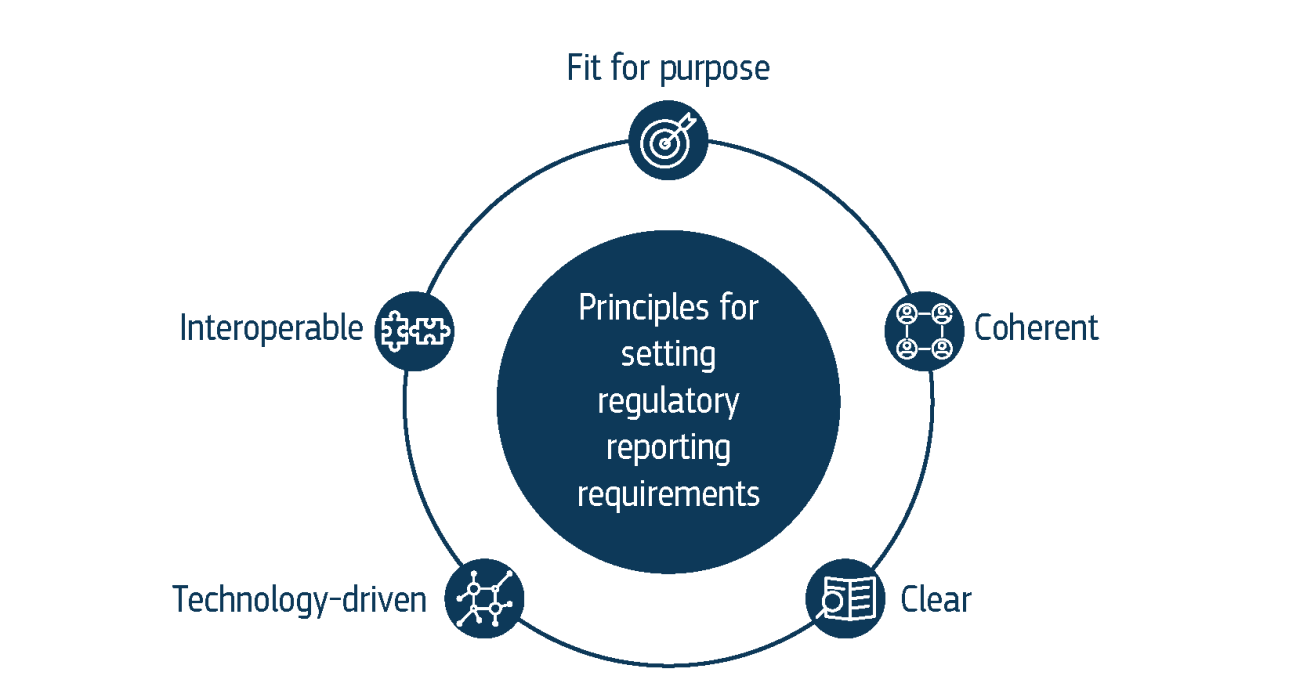Owner
Supra-national authority
Contact information
The main challenges associated with the regulatory reporting process across the EU are universal. Subsequently, Principles for Setting Regulatory Reporting Requirements offer holistic guidance to those working with setting regulatory requirements for a piece of legislation.
Following an in-depth research exercise and interview with policy officers from the European Commission, a total of five principles were identified. The process of setting regulatory reporting requirements should be:
- Fit for purpose, implies that it should be well aligned with the needs of broader policy objectives, ensuring that only the necessary data is collected in order to feed the policy cycle.
- Coherent, implies that policy officers setting up regulatory reporting requirements should aim to ensure the coherence of those requirements with each other and with those already existing in the same or other domains.
- Clear, implies that regulatory requirements should be clearly expressed – explaining their purpose and process and supported by reporting guidelines and templates, where relevant.
- Technology-driven, implies that, where possible, officers setting regulatory reporting requirements should collaborate with the IT officers who will be involved in handling reported data at the early stage of requirements setting, and rely on IT systems when beneficial.
- Interoperable, implies that the data being collected follows European or international standards and specifications of data classification, and is accompanied by high-quality metadata.

.
The principles are further detailed, together with the challenges they address and the identified best practices in a dedicated issue paper. You can download it below.

Detailed information
Last update
Moderation
Any user can create content.
Non moderated

